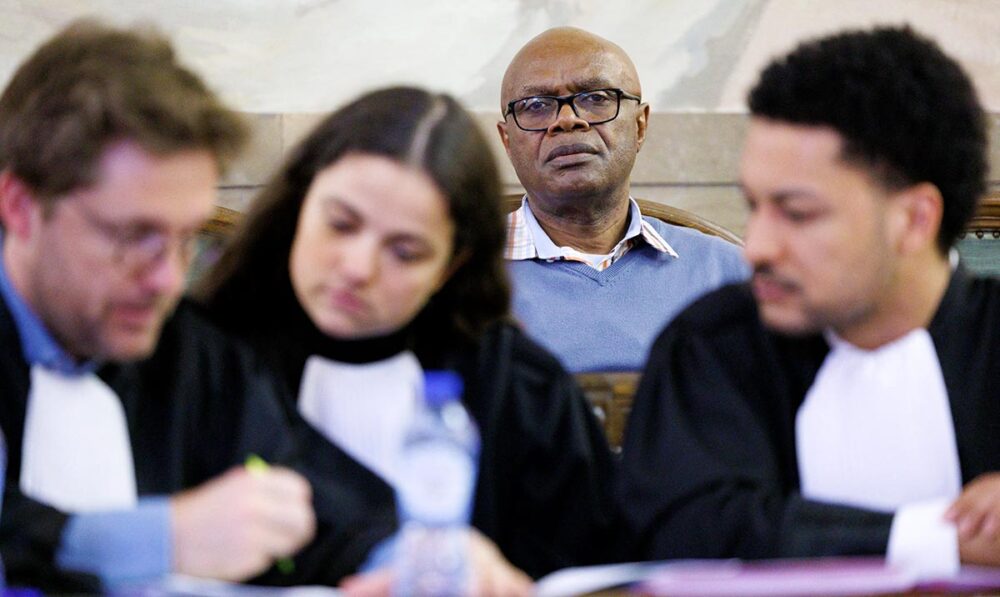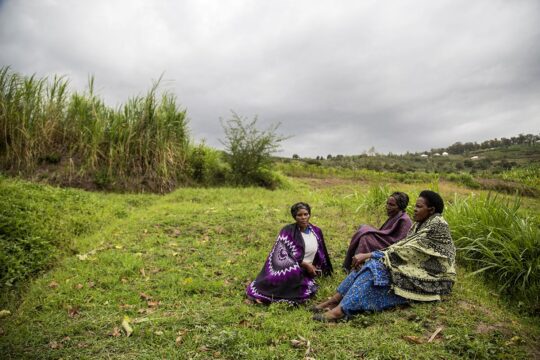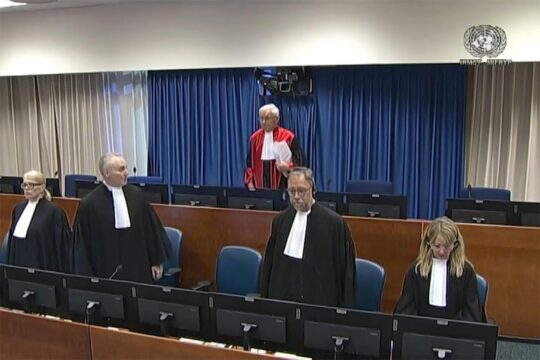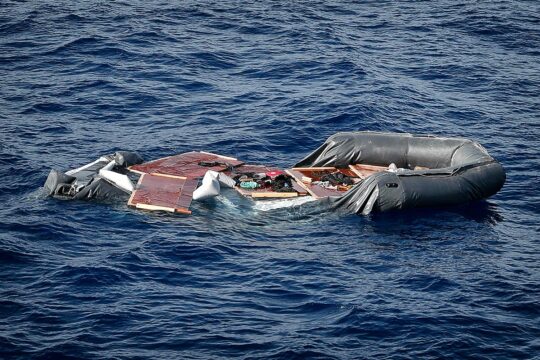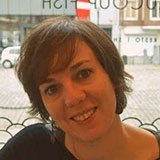Three months after convicting two Rwandans for participating in the 1994 genocide, the Brussels Assize Court was preparing to try two others as of April 8, which coincides with the thirtieth commemoration of the genocide. In the end there will only be one. On March 19, the court ordered that they be tried separately, so Emmanuel Nkunduwimye will face his judges alone. A particular aspect of this trial is that it is a kind of distant echo of another well-known case opened 25 years ago before the International Criminal Tribunal for Rwanda (ICTR) in Arusha, Tanzania.
According to the Belgian prosecutor’s indictment, Nkunduwimye was a close friend of Georges Rutaganda, vice-president of the national committee of the Interahamwe, the militia that spearheaded the massacres committed between April and July 1994 in Rwanda. Nkunduwimye is accused of having committed an indeterminate number of murders, one rape and an attempted murder in the Amgar complex in Kigali belonging to Rutaganda, who had an automobile garage there. Amgar was one of the sites central to the Rutaganda trial before the ICTR. According to the indictment, Nkunduwimye operated the garage there.
The shadow of the ICTR trial
The Belgian investigators have gathered testimonies claiming that Nkunduwimye often moved around with Rutaganda during the genocide, armed and wearing a military jacket. The testimonies say he was also a member of the national committee of the Interahamwe. Nkunduwimye is not listed as one of its 11 members. However one of them, Ephrem Nkezabera who was tried and convicted in Belgium before he died, stated that Nkunduwimye was a member of the committee without having an official function. Other witnesses say that on the contrary, the accused needed to go around with Rutaganda for protection from the militiamen because his brother-in-law was funding the Rwandan Patriotic Front (RPF) Tutsi rebels fighting the Hutu government.
It was perhaps also during the Rutaganda trial that Nkunduwimye drew the eye of judicial authorities. According to the indictment, he gave testimony that was very favourable toward Rutaganda on February 17 and 18, 1999 during the latter’s trial. He is said also to have tried to convince other Rwandans to come and paint a favourable picture of Rutaganda. During his testimony at the ICTR, Nkunduwimye denied that there were arms, grenades and ammunition at Amgar. He also denied that he had himself received money with Rutaganda to smuggle persecuted Tutsis and Hutus into the Hotel des Mille Collines in central Kigali, where dozens of them took refuge in April and May 1994.
Nkunduwimye himself told Belgian police on May 13, 2011 that the ICTR investigators had “vowed he in turn would be prosecuted” for refusing to testify against Rutaganda. His case caused controversy at the time over the UN investigators’ methods. Rutaganda, who was sentenced to life by the ICTR, died in prison in 2010.
Nkunduwimye has also attributed his judicial troubles to a certain Augustin Ntazinda, with whom he had a business conflict and who had sworn his downfall.
An accused almost juvenile during the genocide
This latest Belgian trial was supposed to be dealing also with a man who was only 18 at the time of the genocide. However, Ernest Gakwaya will not be in the box next to Nkunduwimye. He was due to be released in February in Burundi, where he was serving time for falsifying documents. But he has not yet been transferred to Belgium. No date has yet been set for his trial. He will in any case be the youngest person accused of genocide in Rwanda to be tried by a foreign jurisdiction.
When the genocide began on April 7, 1994, he was an electro-mechanics student living with his parents in the Nyamirambo district of Kigali. Numerous witnesses have told the Belgian investigators that he joined the Interahamwe of his neighbourhood and that he went to the “Beau Séjour” café, where these militiamen convened. It was there, according to Belgian investigations in Rwanda, that many young Tutsi women were held captive as sexual slaves of the Interahamwe.
Several witnesses have accused Gakwaya of participating notably in three bloody attacks in Nyamirambo: at the Charles Langwa parish, where 500 to 600 moderate Hutus had taken refuge; at the Frères Joséphites convent; and at the “Chez Gasamagera” home, where young Tutsi women were hiding. He is accused of five rapes, of which four at the “Beau Séjour” café and one at the Frères Joséphites convent.
Between 2001 and 2021, Belgian justice judged eleven Rwandans in six different trials. Forty-nine cases (including Nkunduwimye and Gakwaya) are still open to date in Belgium against individuals suspected of having participated in the genocide of the Tutsis. Four are close to being brought to trial, 33 are still under investigation, and 12 are at a preliminary stage.


